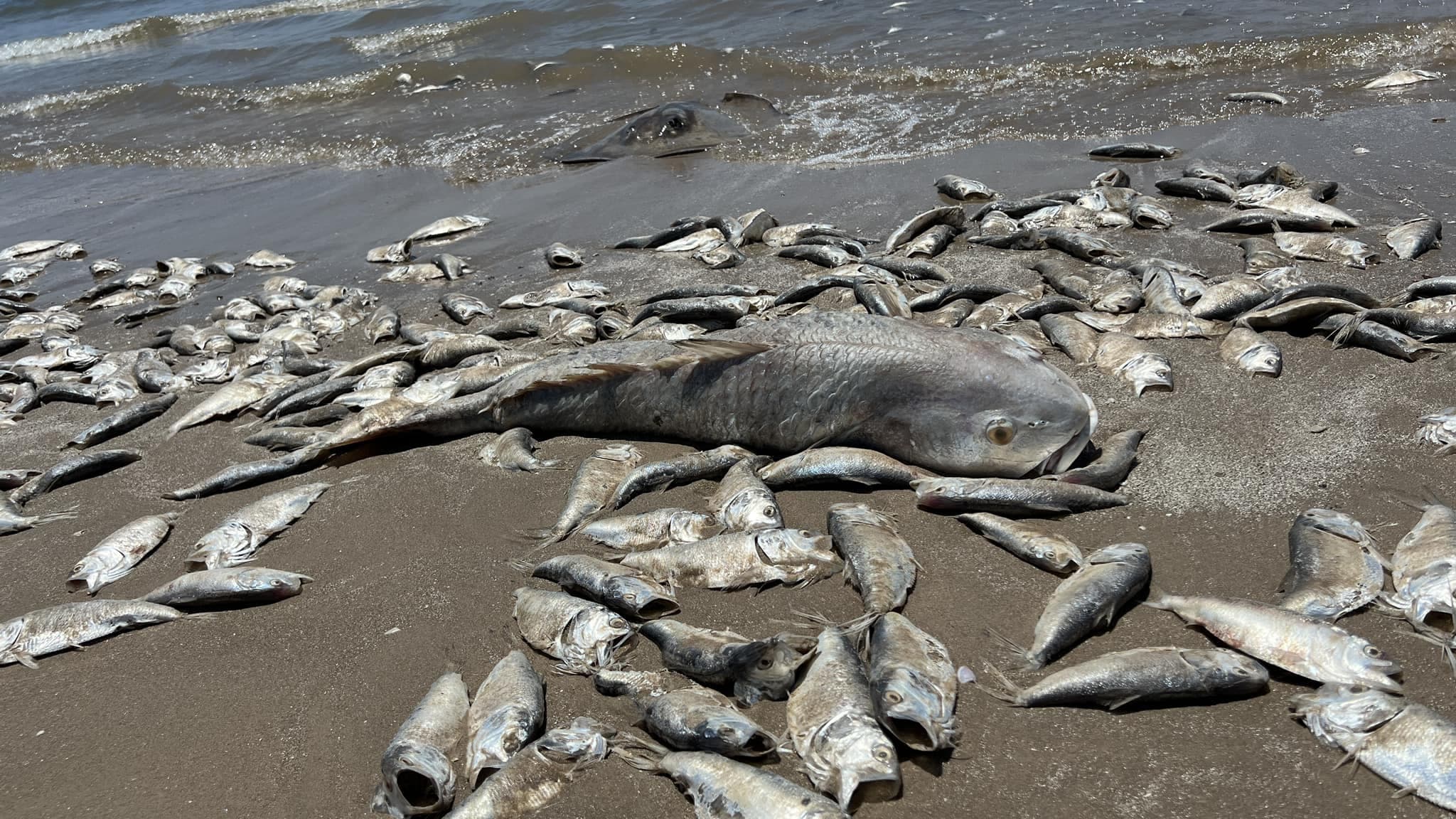Why are animals washing ashore across the country?
Marine animals are ending up beached in the thousands


A free daily email with the biggest news stories of the day – and the best features from TheWeek.com
You are now subscribed
Your newsletter sign-up was successful
From sea lions and dolphins in California to fish in Texas and whales on the East Coast, marine animals are ending up ashore injured or dead. While the reasons for each circumstance vary, experts posit that they all trace back to climate change.
Why are animals washing ashore?
The oceans are facing several stressors, including El Niño and uncharacteristic warming. The problem with warmer oceans is that it contributes to many other oceanic changes impacting the habitats and food sources for marine animals.
In the case of dolphins and sea lions in California, the largest contributing factor is a toxic algal bloom in the Pacific Ocean. While the waters in the area are not as warm as in some other areas, "that does not necessarily mean there is no climate connection," and "there remains some possibility that climate change may favor more toxic algae," Michael Milstein, a spokesperson for the National Oceanic and Atmospheric Administration Fisheries, told CNN. The algae produce a neurotoxin called domoic acid that harms animals, including humans.
The Week
Escape your echo chamber. Get the facts behind the news, plus analysis from multiple perspectives.

Sign up for The Week's Free Newsletters
From our morning news briefing to a weekly Good News Newsletter, get the best of The Week delivered directly to your inbox.
From our morning news briefing to a weekly Good News Newsletter, get the best of The Week delivered directly to your inbox.
In Texas, the waters are facing a "perfect storm" of unfavorable conditions, Bryan Frazier, the director of the Brazoria County Parks Department, told The New York Times. Tens of thousands of fish were victim to warming oceans, leading to less oxygen in the water. In addition, the seas were calmer and the skies were cloudy, preventing waves from forming and organisms from performing photosynthesis. Both things oxygenate the water, and with the warm water already having less oxygen, it became a deadly situation. "As we see increased water temperatures, certainly this could lead to more of these events occurring," said Katie St. Clair, the sea life facility manager at Texas A&M University at Galveston, to the Times, "especially in our shallow near-shore or inshore environments."
Across the East Coast, there have been instances of beached whales that were incorrectly attributed to offshore wind projects. Experts instead attribute the deaths to marine traffic, plastic pollution, noise pollution and climate change. Warming oceans are "bringing some whales closer to shore where they're more likely to come across boats, whether recreational, commercial or fishing fleets targeting the same fish species," according to National Geographic.
Marine environments are just as susceptible to climate change as ecosystems on land. "We're all seeing the world change around us, and the marine environment is no exception," remarked Rob Deaville, of the Zoological Society of London's Cetacean Strandings Investigation Programme, to National Geographic.
How will marine animals continue to be affected?
As climate change worsens, the outcomes for marine life will also be threatened. "Water can only hold so much oxygen at certain temperatures, and certainly we know that seawater temperatures are rising," St. Clair told NPR. "It is concerning and something that needs to be monitored." This will likely not be the last time large-scale deaths and illnesses come to marine populations.
A free daily email with the biggest news stories of the day – and the best features from TheWeek.com
The repercussions will also impact humans. According to a study published in the journal Nature Sustainability, more than 90% of the world's marine food is at risk due to climate change. This includes over 2,000 species of marine life contributing to feeding over 3 billion people worldwide. "Although we have made some progress with climate change, our adaptation strategies for blue food systems facing environmental change are still underdeveloped and need urgent attention," said Rebecca Short, the co-lead author of the study, to Reuters. Many of the problems stem from human activity.
"It's just scary because you normally see the ocean as this source of life, and the idea that we have a poisonous ocean as a result of climate change and human activity is just devastating," Geoff Shester, the California director and a senior scientist with Oceana, told CNN.
Devika Rao has worked as a staff writer at The Week since 2022, covering science, the environment, climate and business. She previously worked as a policy associate for a nonprofit organization advocating for environmental action from a business perspective.
